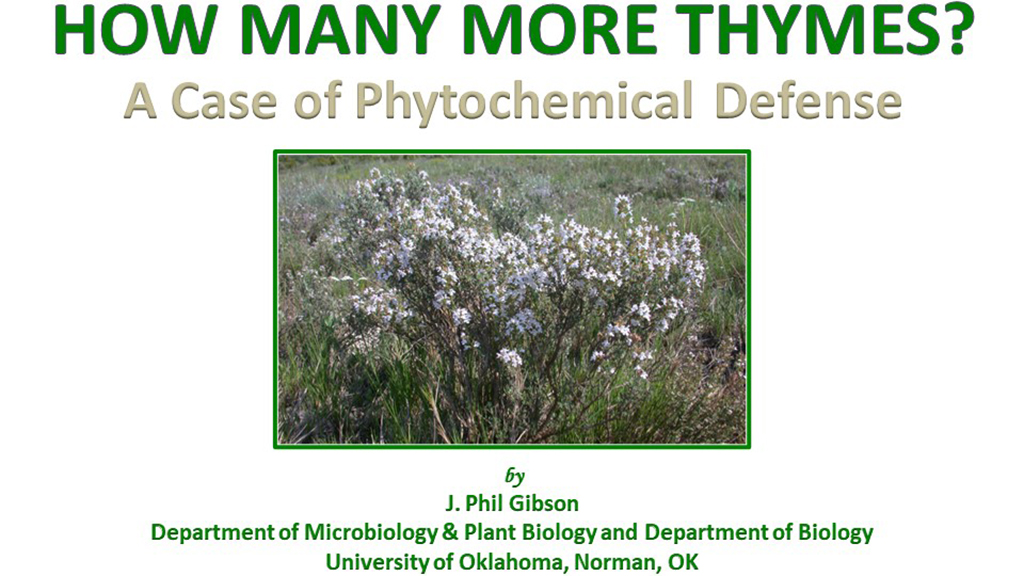Abstract
This clicker case addresses several concepts related to the evolutionary ecology of herbivore defenses. A survey of several different studies that investigated chemical defenses in Thymus vulgaris (thyme) gives students the opportunity to develop hypotheses, pose potential experiments, and interpret data to develop a better understanding of not only herbivore deterrence, but also how natural selection can involve different pressures selecting for different phenotypes. The case study incorporates group discussion, analysis of experimental design, and data evaluation as central activities. It can be taught in a single 50-minute class session, an economy that is achieved in part by using a "flipped" approach. Students prepare outside of class by watching several short videos (one of which was made by the author) that teach the basics of herbivore deterrence and abiotic and biotic forces in the environment that can influence plant adaptations. The case study was designed for use in a large introductory-level class, but would also be appropriate for smaller classes or upper-level evolution courses.



